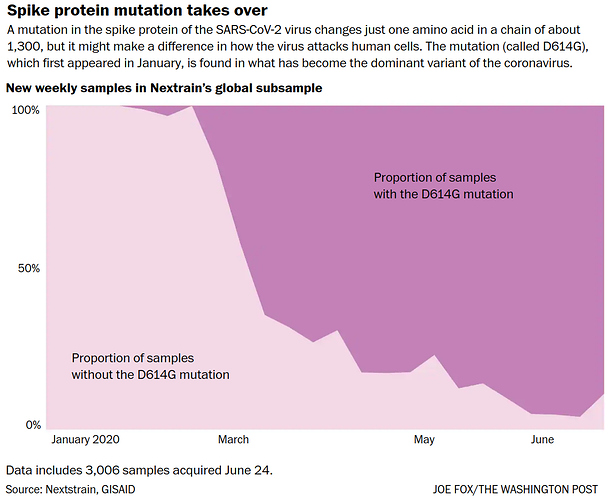(The Guardian, June 28, 2020):
During the early stages of the outbreak, I came down with mild Covid-19-like symptoms. … I became what we now call a Covid-19 “long-hauler” - a patient with initially mild symptoms of likely Covid-19, who would go on to experience a range of sometimes severe symptoms for a prolonged period of time.
The Covid Symptom Study, undertaken by King’s College London, has revealed that 10% of all Covid-19 patients report symptoms for at least three weeks. Surprisingly, people in this so-called Covid tail are on average younger. Most report having been previously healthy, and show relatively mild symptoms in the initial phase of illness. But they continue to experience symptoms such as fatigue, headache, cough, shortness of breath, chest pain, increased heart rates and gastrointestinal and neurological symptoms for weeks or even months following the initial symptoms; often these symptoms might come and go repeatedly.
Though physically I still struggle with lung problems, as a doctor and a scientist I struggle mostly with the lack of knowledge about this condition. We currently have no understanding at all of the biological mechanisms causing these prolonged symptoms. Theoretically, they may be the result of ongoing or resurgent viral replication - which would be important to know since this would imply prolonged infectiousness as well. Perhaps, however, as observed in more severe cases of coronavirus, the virus may trigger an aberrant immune response, resulting in ongoing inflammation throughout the body, which may last far beyond clearance of the virus. A third alternative, as observed commonly following bacterial pneumonia, is that the coronavirus causes more extensive damage of lungs, heart and other organ systems than suggested by the initial symptoms, which simply requires more time to recover.
Without this knowledge, we don’t know if long-haulers are infectious for prolonged periods, or whether they are at risk of experiencing severe complications, and certainly not whether treatment might reduce the duration of their problems. Left unattended, these patients may even develop irreversible damage leading to chronic illnesses.
Until we develop this medical and scientific knowledge, healthcare professionals won’t have the guidance needed to treat these long-haulers. … a high number of long-haulers have organised themselves in online peer support groups. Depending on the country of origin, many report not having received any medical support during their illness, or being dismissed repeatedly. Others report being brushed off by healthcare professionals, misdiagnosed and in receipt of conflicting advice. They also experienced a wide range of stigma - friends keeping their distance for fear they might be infectious, sympathy draining because they “should” have recovered by now, employers losing patience with number of days taken off work.







